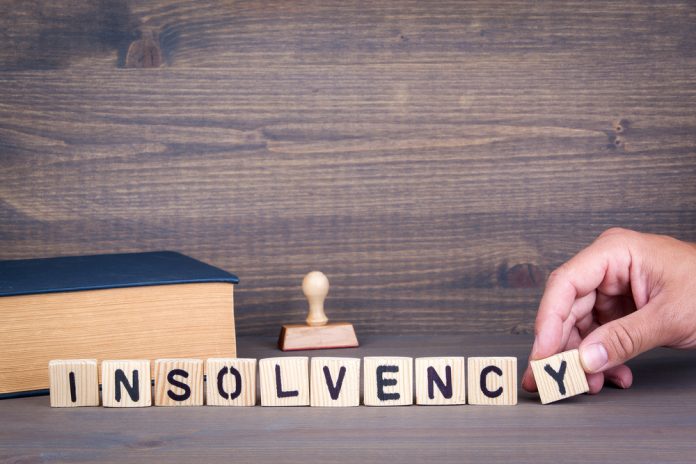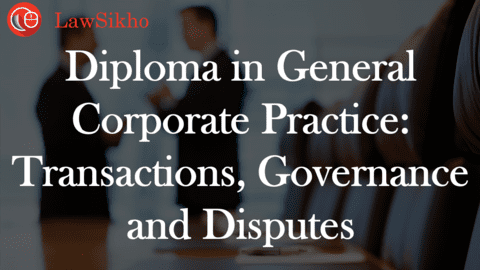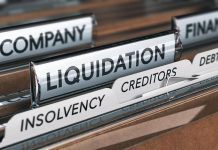This article is written by Sharanya Ramakrishnan, pursuing Diploma in General Corporate Practice: Transactions, Governance and Disputes from Lawsikho. The article has been edited by Tanmaya Sharma (Associate, LawSikho) and Indrasish Majumder (Intern at LawSikho).
This article has been published by Abanti Bose.
Table of Contents
Introduction
The directors of a company are essential to the everyday functioning of the company. As a result, they owe specific fiduciary duties towards the company and are answerable to all stakeholders. In India, these duties have been codified under Section 166 of the Companies Act, 2013. Such duties include acting in good faith, duty to exercise reasonable care, skill and diligence, duty to exercise independent judgment, and duty to avoid undue gains. As long as a company is a solvent, the liability of directors is mainly towards the company’s shareholders as they are expected to take objective decisions for their benefit. Whereas, once a company becomes insolvent, the attention of directors must shift from “earning profit for wealth maximization of shareholders” to “minimizing the loss to and protecting the interests of the creditors”. This has led to the introduction of the Insolvency and Bankruptcy Code, 2016 (IBC,2016), which in turn endeavours to save the life of a company in financial distress.
The insolvency legislation in several countries expressly states the liabilities that directors may face during impending insolvency. These liabilities include liability for avoidance transactions (i.e., preferential transactions, undervalued transactions, etc.), wrongful trading, fraudulent trading, misfeasance, etc. The said liabilities may extend not only to formally appointed directors, who may be executive directors, independent directors but also to non-appointed individuals known as “shadow directors”.
This article endeavours to explain the meaning and concept of a shadow director, his legal status in a company and, considering the same, analyses his liability under the insolvency law in detail.
Meaning and concept of shadow director
The concept of shadow director is adopted from English law. Although not formally appointed as a director, a shadow director is a person in accordance with whose directions or instructions the directors of a company are accustomed to act. However, a person is not a shadow director merely because the directors act on his advice in a professional capacity.
For a person to be given the title of a ‘shadow director’, he must wield considerable power to influence the whole or majority of the Board of Directors (“Board”) of a company, make financial, commercial, and investment decisions that bind the company, and, in some instances, possess whole or part of management authority ceded to him by a company. It may also consist of a person who took part in the company’s formation, promotion, or management. For example, the holder of controlling shares of a private company who is not appointed as a director and does not openly partake in the company’s governance gives directors or instructions that are habitually complied with by the employees or other directors. Besides, in some cases, special advisors, lenders and bankers may also be treated as shadow directors.
Therefore, a person may be considered as a shadow director irrespective of the formal title assigned to him if he possesses the aforesaid powers. In the eyes of the law, he is a de facto director and is held equally accountable for the responsibilities of the company with the other de jure directors. It is crucial to consider the particular person’s conduct and its frequency and determine whether or not the influence is exercised.
Legal position of a shadow director
Although the term ‘shadow director’ is not defined per se under the Companies Act, 2013, the Act has references to it at various places. However, the UK’s Companies Act, 2006 defines the term ‘shadow director’ under Section 251(1) as, “a person in accordance with whose directions or instructions the directors of the company are accustomed to act.”
The Companies Act, 2013 contains a similar definition to above in the following sections:
- Section 2(59) – “officer” includes any person in accordance with whose directions or instructions the Board of Directors or any one or more of the directors is or are accustomed to act”.
- Section2(69)(c) – “promoter” means a person in accordance with whose advice, directions or instructions the Board of Directors of the company is accustomed to act.”
- Section 2(60)(v) – “officer who is in default”, for any provision in this Act which enacts that an officer of the company who is in default shall be liable to any penalty or punishment by way of imprisonment, fine or otherwise, means any person in accordance with whose advice, directions or instructions the Board of Directors of the company is accustomed to act, other than a person who advises to the Board in a professional capacity.”
Therefore, there is no doubt that the position of a shadow director is recognized and given legal status under the Companies Act, 2013. This is necessary to ensure that they do not abuse the power bestowed upon them and take advantage of the fact that they are not formally appointed in the company.
Liability of shadow directors for insolvency procedures
Under IBC, 2016, the liability of directors can either be punitive based or disgorgement based. Punitive liability arises on actions involving an element of mens rea such as defrauding creditors, concealment of property, undervalued transactions, falsification of books of accounts, where the liability can be established by a definite set of objective facts. On the other hand, disgorgement liability is imposed when wrongful trading or certain other unethical business transactions take place requiring repayment of ill-gotten gains.
Section 66 of IBC, 2016 deals with the liability of directors and other persons. While Section 66(1) provides for fraudulent trading, Section 66(2) provides for wrongful trading. Liability for fraudulent trading extends to ‘any person’ meaning ‘insiders’ as well as ‘outsiders’ like employees, directors including shadow directors and other third parties. Whereas, in case of wrongful trading, liability is imposed only on insiders, i.e., directors or partners of a company. This Section does not differentiate between executive, independent or shadow directors and applies consistently to all types of directors of a company. Therefore, shadow directors can be held liable for both fraudulent and wrongful trading.
Liability under the UK Insolvency Act, 1986
The provisions pertaining to fraudulent and wrongful trading in India were derived from UK Insolvency Act 1986 (UK Act, 1986). The provisions of the UK Act, 1986 impose liabilities not only for defrauding creditors but also seek to make directors liable for reckless and negligent acts during a period of financial distress. Shadow directors are not excluded from the said liability and the UK Act, 1986 seeks to make them accountable both for fraudulent as well as wrongful trading.
Liability for fraudulent trading
Section 213 of the UK Act, 1986 permits the court to order any person to make contributions to the company’s assets if they were knowingly parties to the fraudulent trading of business with the intention to defraud creditors, on an application made by the liquidator.
Therefore, in this case, the liability for fraudulent trading will only be determined once the company goes into liquidation. In such cases, the conduct of the shadow director in the period leading up to liquidation shall be taken into consideration. An intention to defraud creditors may be inferred if the company carries on a business and incurs debt when, to the knowledge of the party liable, there is no reasonable prospect of the company being able to repay.
Section 213 of the UK Act, 1986 covers only civil liability and enables liquidators to recover compensation from those who have knowingly assisted the fraudulent conduct of a company’s business. In the case of In Re Patrick and Lyon Ltd, a director of a company delayed liquidation for a period of 6 months in order to deprive the creditors of the recovery of their dues. The court held that the jurisdiction of the court is confined in civil cases, to declare the past or present directors including shadow directors of the company responsible for carrying on business with the intent to defraud the creditors, to be personally liable for all or any of the debts of the company as the court may specify.
Moreover, the term ‘any person’ extends the liability beyond past and present directors including shadow directors and to other persons including companies who were knowingly parties to such fraudulent trading.
Liability for wrongful trading
Section 214 of the UK Act, 1986 imposes a personal unlimited liability on a shadow director to contribute to the assets of a company that has gone into liquidation if he continued to trade negligently and recklessly when he knew or ought to have known that there was no prospect for the company to avoid the liquidation process.
In the case of Re Continental Assurance Company of London Plc, the company collapsed due to heavy losses due to unexpectedly high travel insurance claims and the inability to make suitable provisions for these claims in the company’s reserves. The liquidators brought proceedings against the former managing director and some of the company’s former non-executives under Section 214 of the said Act on the contention that the directors should have stopped trading when the losses were first reported.
However, the court rejected their contention, stating that based on the information available to them at the time, the defendants had acted reasonably in deciding that the company could continue trading to find a buyer for its business. Furthermore, they were active in keeping the company’s financial position under close and continuous review, and a reasonably diligent person in their position could not have been expected to do anything more.
Thus, a shadow director would be measured against the general knowledge, skill and experience that may be reasonably expected out of a ‘reasonably diligent person’ acting in a similar capacity.
Liability under IBC, 2016
Liability for fraudulent trading
Section 66(1) imposes liability on any persons who were knowingly parties to the carrying on of the business with the intent to defraud creditors of the corporate debtor or for any fraudulent purpose, to make contributions to the assets of the corporate debtor as per the order of the Adjudicating Authority (National Company Law Tribunal).
As stated above, the term ‘any person’ seeks to include a wide range of persons in its ambit. A shadow director, therefore, would be liable only if he ‘knowingly’ carries on fraudulent activities. Fraud or fraudulent purpose has been interpreted to mean “actual dishonesty according to the current notions of fair dealing”. The essential element of fraudulent trading is an ‘intention to defraud’ creditors. An intention to defraud creditors can be inferred if there was dishonesty involving real moral blame according to current notions of fair dealing.
In the case of R v. Grantham, it was held that, where a person is involved in the management of a company’s affairs and obtains credit for the company despite knowing that there is no reason to believe that he will obtain adequate funds to discharge the debt when it becomes due, he is said to carry on company’s affairs ‘with the intent to defraud’ the creditors of the company. For a person to be proved guilty of such offence, it is not necessary that the person accused must believe that there was no reasonable prospect of the company’s creditors ever receiving payment of their debts. It is sufficient to prove that he believed that the debt could not be paid when it became due or shortly thereafter.
Therefore, a shadow director can be held liable in situations where a company carries on a business and incurs debts even when he is aware that there is no reasonable prospect of the company being able to pay them. Reasonable grounds for suspecting non-payment of debt or insolvency would require more than mere speculation, and the director must have an actual apprehension that the company is insolvent. This is a comparatively lower standard than expecting or knowing the company is insolvent. The shadow director should be a person of ordinary competence capable of having a rudimentary understanding of the company’s financial status, and the judgment ought to be made on the basis of knowledge such a director could have had and not on information that might later become apparent.
In case of liability, the NCLT has the authority to claim a contribution to the assets of the corporate debtor from the defaulting shadow director.
Liability for wrongful trading
Under Section 66(2), on an application made by an insolvency professional a director/partner is liable to make contributions to the assets of the company and the NCLT may disgorge such amounts from the director’s/partner’s personal assets if:
- the director knew or ought to have known that there was no reasonable prospect of avoiding the commencement of a Corporate Insolvency Resolution Process (CIRP) against the company; and
- the director did not exercise due diligence in minimizing the potential loss to the creditors of the company.
The explanation to the Section provides that a director is said to have exercised sufficient due diligence if such diligence was reasonably expected of a person carrying out the same functions as the director.
Therefore, under Section 66(2), a shadow director would be held liable even if he did not have a dishonest intention but acted negligently or recklessly, thereby subjecting the company to further risk due to such actions. For instance, behaviours or actions such as imprudence, incompetence, lack of attention, failure to act in due time, engaging in transactions that are not at arm’s length, erroneously extending credit beyond the company’s means, failure to undertake satisfactory research into the financial soundness of business partners, neglecting proper financial administration of the company, etc. may give rise to liability under this Section.
Consequently, the liability of a shadow director will depend on whether or not his actions meet the “due diligence” standard. He must act in the same manner in which a reasonable and competent person would have acted in similar circumstances and contexts.
The business judgement rule that establishes a presumption that the shadow director, for example, had acted in good faith and had a rational belief that he acted in the company’s best interests, had no material personal interest, and that he was properly and sufficiently informed, could serve him as a safe harbour from the guilt of negligence. However, the shadow director must ensure that he has adequately informed himself with respect to the company’s financial matters by acquiring, studying and relying upon information that a reasonable person in similar circumstances would find persuasive.
Prioritising creditors’ interests
This section is responsible for shifting the focus of directors’ duties from shareholders to the creditors during the ‘twilight zone’ (the period between the time when the director knew or ought to have known that there was no reasonable possibility of avoiding the commencement of CIRP, till the time the company enters into such resolution) as it casts personal liability on such directors to the extent of the potential loss incurred by the creditors by reason of failure to exercise due diligence in minimising the said loss.
During such a period, additional responsibility is imposed on the director to prioritize the interests of the creditors above the shareholders and ensure that the affairs of the company are adequately conducted, and its properties are not exploited to the prejudice of such creditors. Therefore, a shadow director is expected to ensure that he acts in good faith and in the best interests of the creditors.
The perplexing issue in this Section is determining the point of time of commencement of the twilight zone. Although this issue is ambiguous, a reasonable expectation of insolvency, along with the knowledge that insolvency may be near, will cause a shift in interests from shareholders to creditors by directors.
Ceasing of directors’ liability
Under the IBC, 2016, when a company continues to function in a state of financial distress, thereby making it unable to pay its debts as and when they fall due, it can voluntarily initiate an insolvency resolution process. On acceptance of such application and appointment of an Interim Resolution Professional (IRP), the Code suspends the powers of directors. The IRP would thereafter be responsible for managing the operations of the company. As a result, shadow directors would no longer be personally liable for any further actions as they are not empowered to act beyond this period.
Punishment for transactions defrauding creditors
Section 69 of IBC, 2016 recognizes severe criminal penalties for defrauding creditors if the defaulting party is an officer of the company. It includes imprisonment for a minimum term of 1 year, which may extend to 5 years, or a fine that shall not be less than Rupees 1 lakh but may extend to Rupees 1 crore or both.
The term “officer” under the IBC, 2016 has been defined under Section 5(19) to mean an officer who is in default as defined in Section 2(60)(v) of the Companies Act, 2013. As stated above, a shadow director is considered to be an officer-in-default by virtue of the said provision and would therefore be liable for the prescribed punishment.
Steps that can be taken to mitigate liability
The shadow director has to ensure that the value of the company’s business is preserved and at the same time avoid personal liability by taking appropriate steps to minimise the probable loss to the creditors of the company. There might be situations where the company though is presently solvent, could potentially be dragged into CIRP owing to temporary liquidity issues. As a result, the shadow director has to be cautious in order to save himself from personal liability. The mitigating steps that can therefore be taken:
- Negotiate long-term loan contracts in a manner whereby any default in payment would enable the opposite party to initiate CIRP only after affording the company a sufficiently long notice period to consider all the possible options. As a result, he can buy time to take note of all viable options.
- Keep in place appropriate procedures to enable timely consultation with the company’s auditors to retrieve adequate financial information about the company.
- Frequently discuss and appraise the cash flows of the company and strictly monitor all actual and contingent claims against the company.
- Obtain director and officer liability insurance and review the same at regular intervals to ensure that it covers any liability arising as a result of wrongful trading.
- Ensure appointment of independent and reputed merchant bankers to formally opine on business potentiality and solvency in the immediate future on early signs of distress.
- Obtain a legal opinion from reputed law firms to ensure that steps are taken at the onset of a potential CIRP meet the criteria of “due diligence” under Section 66(2) of IBC, 2016.
- Lastly, if all else fails, timely file for CIRP if it appears that any inaction may further decline the value of assets to the creditors.
Conclusion
Despite the possible difficulties connected with taking appropriate business decisions, prompt action must be taken when a company faces financial problems. A financial downturn usually occurs more rapidly than many parties would believe. As a company’s financial position worsens, the options available for achieving a viable solution also rapidly diminish. The shadow directors are bound to keep themselves abreast of the financial condition of the company. If they fail to take active steps to recover a company in financial distress, the law should make them responsible for the same.
Section 66 of IBC, 2016 endeavours to do so by not only making the liability of such directors unlimited in cases of fraudulent trading but also by mandating them to contribute to the assets of the company in cases of their negligence or recklessness. As a result, shadow directors, among others, should understand the company’s financial situation and possess all reasonably available information to exercise due diligence to address the company’s financial distress and satisfy the creditors’ claims.
References
- https://thecompany.ninja/shadow-director/#:~:text=Shadow%20Director%2D%20A%20person%2C%20not,a%20director%2C%20if%20need%20be
- https://vinodkothari.com/wp-content/uploads/2019/06/A-note-of-Fraudulent-and-Unlawful-Trading.pdf
Students of Lawsikho courses regularly produce writing assignments and work on practical exercises as a part of their coursework and develop themselves in real-life practical skills.
LawSikho has created a telegram group for exchanging legal knowledge, referrals, and various opportunities. You can click on this link and join:
https://t.me/joinchat/L9vr7LmS9pJjYTQ9
Follow us on Instagram and subscribe to our YouTube channel for more amazing legal content.
 Serato DJ Crack 2025Serato DJ PRO Crack
Serato DJ Crack 2025Serato DJ PRO Crack











 Allow notifications
Allow notifications


